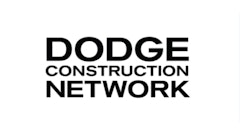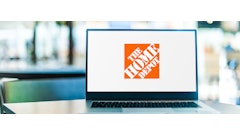Despite the perception that we now live in an e-mail world, faxing is still a very important tool in the construction industry. Each day thousands of pages of urgent and confidential information is transmitted over phone lines – where it sits in open trays on fax machines until whoever happens to be passing by delivers it to its intended destination. Assuming the fax doesn't meet up with a busy signal first.
Now a new technology – Internet faxing – is replacing the old fax machine. This technology allows users to transmit and receive documents over the Internet to/from a traditional fax machine or another Internet fax-enabled computer. Among the benefits are saving as much as 90 percent on the cost of adding a fax machine and 85 percent of the monthly cost of a fax server; protecting privacy; simplifying document management by delivering faxes electronically; and extending your faxing capabilities to anywhere you can get an Internet connection – even to a job site.
Of course, there are many different "flavors" of Internet faxing available; so how do you choose which service to use? Following are 10 tips you can use to help you sort through the myriad of choices in order to get the best combination of features and flexibility. While it may not be everything you need to know, it should be enough to get you started.
- Make sure you can receive faxes either via e-mail or online.
Some services limit you to e-mail delivery only, which can be a problem for mobile workers who are not connected to the office. You'll want to be sure you can send and receive faxes anywhere there's an Internet connection – even if you can't access e-mail. That way you'll be able to review the fax, forward a clean copy, and append a note if required – all without having to print the document. - Watch out for hidden charges.
While free services may be tempting, there are often hidden charges such as fees for going over your limit of received faxes or failed faxes. Toll-free numbers can also become expensive if the service appends a charge to incoming faxes that use your 800 number. Be sure you understand up-front what you're paying for, what the limitations are, and how you will be invoiced each month. - Check for the availability of different file formats .
Most Internet fax service providers will deliver the fax to you as a TIF file attachment. That works fine – unless you are trying to tie in to an existing document management system that requires a different format. Your service should be able to deliver documents in a range of other formats that work with common office tools, including Adobe Acrobat (PDF). - Don't get tied down to one e-mail address.
One of the purposes of using Internet faxing is to provide you with flexibility. A good service will make it easy to change or add multiple e-mail addresses online, so you can always receive that important fax when you need it. - Research the company behind the service.
There are a number of providers that literally operate out of a basement in their homes with just a handful of people. This creates a risk that a small operation's server will go down just when you need it most. Be sure the service has the capacity and reliability you require. Seek out product reviews, read online forums and blogs, and talk to others who use the service. - Get a confirmation of fax results.
With a standard fax machine it's easy to see whether the fax went through. Because Internet faxes are electronic documents, there are no success stamps to see. A good Internet fax service will send confirmation e-mails directly to your in-box, with complete log information so there's no guesswork. - Check out the scalability.
Different Internet fax services can accommodate a wide range as far as the number of users goes. Ideally, you should be able to go from one to one thousand as your business grows without having to change numbers. - Know your limitations.
Each Internet fax service has its own threshold regarding how many faxes are included in the monthly fee, and what the charges are for going beyond those limitations. Be particularly careful of services that promise "unlimited" numbers of inbound or outbound faxes. Check the fine print in the user agreement, as often there actually are limits hidden within it. - Confirm that help is available if needed .
Make sure you can get support when you need it, preferably 24x7 support with a live person who knows the service and can help you solve problems quickly. If not, you'll be faxing at your own risk. - Assure you have complete independence.
You should be able to both send and receive faxes from your e-mail account anywhere you can connect to the Internet — including a construction trailer — without having to download additional software.
If faxing is a critical component to your business, you want to be sure you make a wise decision on how to do it. Follow these tips and you're 99.998 percent sure of getting an Internet fax service that will meet all your requirements — for cost effectiveness, reliability, flexibility, and excellence. Just remember that all may not be what it seems. Do your investigation thoroughly and you'll have a better total experience. Happy faxing!
Steve Adams is Vice President of Marketing for MyFax, a provider of Internet faxing services for individual home users, small businesses, and large corporations. MyFax has won a number of awards in head-to-head competitions for ease of use, reliability, and best overall value. He can be reached at : [email protected].

















